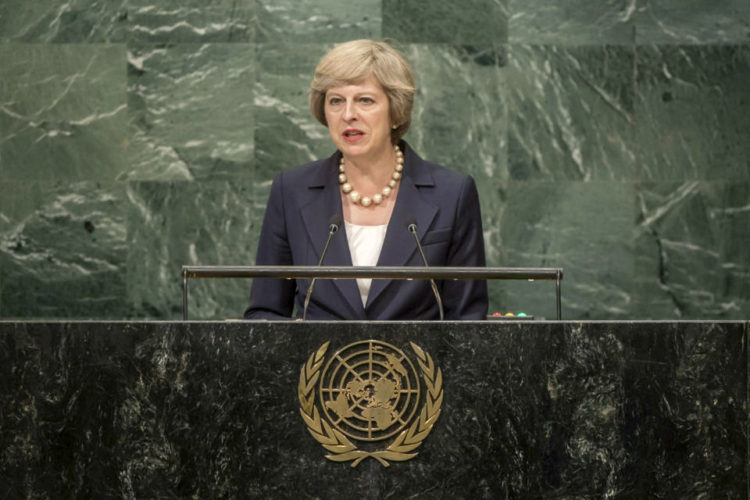By Gabriel Princewill
The British Government is to double funding into brain cancer in memory of the late Tessa Jowell Jeremy Hunt and Prime Minister Theresa May announced government plans to double funding for brain cancer research from £20million a year to £40m, and will roll out better diagnostic testing for the illness to all NHS hospitals.
The moving reaction form the government comes a few days after Jowell’s sad death from brain cancer. The ambitious MP had been passionately campaigning for better treatment and diagnosis for those with brain cancer, for months after being diagnosed herself in May 2017. A new test for brain cancer, which uses gold standard dye to identify tumours is to be rolled out by the government. The British government also plans to speed up the use of adaptive trials for treatments, something Jowell campaigned for earnestly.
Downing Street announced that extra funding would fulfil two of Jowell’s key campaign aims, including a national rollout of a brain cancer diagnosis test, gold standard dye, used to identify tumours. This method is currently adopted in just half of brain cancer centres in England.
BOOSTED RESEARCH
The Tessa Jowell Brain Cancer Research Mission will cover several of Baroness Jowell’s campaign requests, the UK government has said. ”It will include a boosted research fund, an annual global symposium and new commitments to clinical excellence in her name.
The UK government said the decision follows a meeting Tessa Jowell had with the Prime Minister and the Health Secretary in Downing Street last February. Jowell was a remarkable member of the Uk government, who campaigned relentlessly to raise awareness of brain cancer, and seek advanced treatments to remedy the killer disease.
Commenting, Prime Minister Theresa May said:
Baroness Tessa Jowell faced her illness with dignity and courage – and it was a privilege to host her in Downing Street recently to discuss what more we can do to tackle brain cancer. We send our sincere condolences to her family – and I hope that the actions we are taking now and in the future to improve care and research for those confronting a terrible disease will form part of the lasting legacy of an inspirational woman.
Announcing the Mission, Health Secretary Jeremy Hunt said:
”Tessa Jowell was one of those few politicians who could inspire and unite across party lines. We were all moved by her bravery and selfless campaigning in her final months, and are determined to honour her life and memory with the action on brain cancer that she fought so hard for. At this agonising time, I hope her family can draw comfort from the fact that her legacy will be lives saved and heartbreak averted for thousands of other families.’
”Health Minister Lord O’Shaughnessy will lead the work to implement these commitments. Lord O’Shaughnessy said: we are deeply saddened by this loss – Tessa Jowell did more than anyone to shine a light on the need to improve research and care for people with brain cancer.
”It is a great privilege and honour to take forward this work, which we hope will boost life-saving research and transform brain cancer care in the way that Tessa called for.
Jowell’s husband, David Mills, spoke reminiscently of her ”extraordinarily successful career in politics”, and an extra 25% contribution she made to publicizing the shortage of research for brain cancer, and to give people hope that they wouldn’t have had.”
Towell’s family spoke of the ”gentle release’ her death brought about, because the former MP was not very aware of a lot of what was going on during the three days in which the deadly brain tumour killed her. Her father, David Mills, spoke proudly of the 25% extra contribution she made to publicize the shortage of research for brain cancer.
TREATMENT
Jowell is known to have sought immunotherapy treatment in Germany, whilst she held hopes of trying a vaccine made from the DNA of her tumour. Sadly, she died 36 hours after suffering a haemorrhage, Mills said.
“One thing she said was, ‘If I can just survive two years at a time, or even a year at a time, new things will come along and it’ll give us new hope,’” he said.
“And I think that is, in a sense, the message that is coming out now – that with this wonderful initiative from the government there will be more impetus into the research that’s necessary, and people who suffer from this disease will have a growing chance to survive.”

